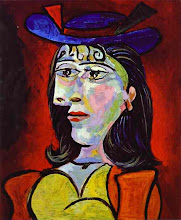
 I have been living dangerously this past week and experiencing some events I hope never happen. I know its so cliche, but I am once again reminded of why we read. Jane Yolen and Bruce Coville took me up a mountainside with a millennialist sect, hoping to be saved by God from the fire that would end the Earth. Susan Beth Pfeffer's Life as We Knew It raced me around a supermarket frantic and scared as the moon, knocked out of orbit, unleashed tsunamis and played havoc with power supplies. All that and conferences, too!
I have been living dangerously this past week and experiencing some events I hope never happen. I know its so cliche, but I am once again reminded of why we read. Jane Yolen and Bruce Coville took me up a mountainside with a millennialist sect, hoping to be saved by God from the fire that would end the Earth. Susan Beth Pfeffer's Life as We Knew It raced me around a supermarket frantic and scared as the moon, knocked out of orbit, unleashed tsunamis and played havoc with power supplies. All that and conferences, too!Armageddon Summer is supposed to be a love story among other things. Two teenagers, Marina and Jed, come together as they watch the world around them fall apart but not because of God's wrath. Rather, it is human nature - fear, doubt, selfishness, and self-righteousness- that sparks the tragedy on the mountainside and leaves twenty dead. For me, the romance seemed superfluous to what was really a fascinating journey in to the hearts and minds of a group of people desperate to believe in something that would wipe away the mess of their worldly existence so far. Marina's mother's marriage is falling apart and Jed's mother recently walked out on both him and his father. These disillusioned adults find something to trust and believe in in the form of Reverend Beeson and his Believers. "I stood by you all these years and believe me it hasn't been easy," Marina's mother writes to her husband. "But there's a hole inside me. I want to believe in something. Something bigger than me. Once it was you I believed in. That's a long time gone." Ironically, by giving themselves up to Beeson's Flock they abandon the people who need them and believe in them the most - their children. The end of the novel was quite a shock for me. The believers barricade themselves in to their mountain retreat using electric fences and guards with guns. As the appointed day approaches, panic stricken "outsiders" demand to enter the compound and the day of judgement ends with death and disillusionment for the Believers. I would have liked to see where the authors would have taken the story if simply nothing had happened on that day. No fire and brimstone; no saving or cleansing. What then?
Life as we Knew It is a slow burn. It begins with the catastrophic alteration of the moon's orbit and life never gets back to normal. Miranda and her family are spared the tsunamis of the coastal states and the earthquakes of the mid west, but they must struggle daily to survive as food, gas, oil, and water become increasingly sparse. Family and its survival become the number one priority. This is not a story of a community coming together in times of crisis. It is Darwin's theory of survival made real. Would this be the reality? I didn't love this book but I appreciated its honesty and simplicity.

No comments:
Post a Comment